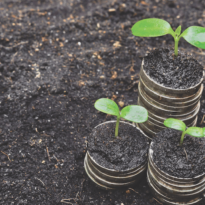Fidelity International has named deforestation, the ‘Just Transition’ and ‘Double Materiality’ as three key themes for ESG in 2022.
Jenn-Hui Tan, global head of stewardship and sustainable investing at Fidelity, said: “For investors focused on sustainability, 2021 was a year dominated by the runup to and takeaways from November’s COP26 climate change negotiations in Glasgow, Scotland.
“But the true test is just beginning now: What actions will countries take to deliver on their pledges, not only in terms of emission cuts but in preserving our biological diversity and ensuring a fair and equitable transition to a low carbon world? As we head into 2022, we see three big themes coming into greater focus.”
Fidelity says ending deforestation will be critical to curbing climate change and protecting the world’s biodiversity.
Tan said: “Reducing greenhouse gas emissions is only part of the battle; we also need to actively remove carbon from the atmosphere if we’re to stand a chance of meeting mid-century global targets for curtailing global warming and achieving net zero.
“One of the simplest and most effective ways of removing carbon from the atmosphere is a natural one; ending deforestatation. Globally, natural capital has been undervalued for decades. And it’s not only the emission cuts that forests bring – they are also home to most of the world’s terrestrial biodiversity and support the food security, jobs and livelihoods of many millions of people across the world.”
At COP26, Fidelity joined over 30 financial institutions representing more than $8.7 trillion in assets under management in signing a pledge to eliminate agricultural commodity-driven deforestation risks across investment portfolios by 2025.
Fidelity also believes ‘The Just transition’ will be a core focus next year, with wealthy countries now leading the decarbonisation charge. However, it says the drive to net zero should be careful not to prevent developing economies from developing or employees who are displaced by greener technologies from finding meaningful work.
Tan said: “Throughout 2022, we will be targeting the biggest emitters through transition engagement, starting with thermal coal producers. We will expand this engagement to utilities and power generators leading to a phase out of thermal coal exposure across our portfolios by 2030 for OECD markets and by 2040 globally.”
Fidelity said the private sector has a key role to play in facilitating the shift to clean energy but should do it in a way that scales “genuine alternatives” for baseload power generation in the many countries that continue to rely on fossil fuels.
Finally, Fidelity believes ‘double materiality’ – which recognizes that companies are not only responsible for managing the financial risk but are also responsible for the actual impact that their business has on people and the planet – will be a key consideration for 2022.
Tan added: “As investors driven by fundamental research, we are seeking to embed this principle of double materiality in the next iteration of our sustainability ratings and to integrate the non-financial impact of our decisions as investors.”
Fidelity’s ESG ratings currently include around 5,000 companies, but it plans to introduce a specific climate rating to assess the ambition and alignment of its investees to a net zero future.































